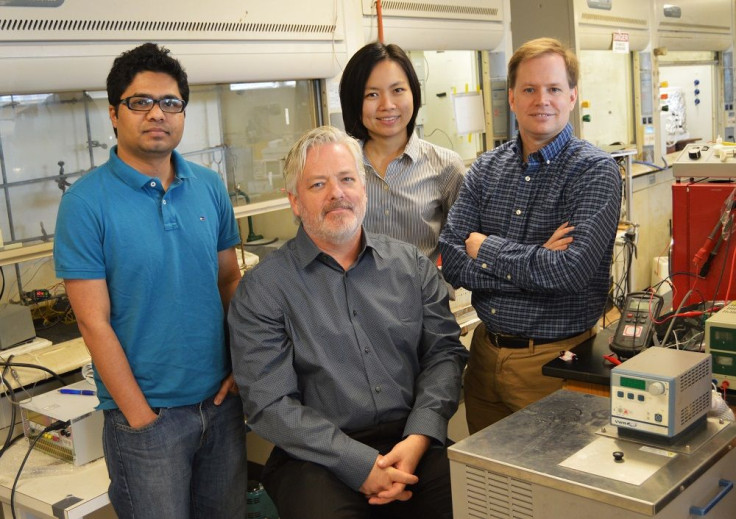New University of Texas Arlington technology removes CO2 from atmosphere to make fuel

A one-step conversion process that turns carbon dioxide and water into useable liquid hydrocarbon fuels makes change of current fuel distribution system in vehicles unnecessary. The inexpensive and simple new sustainable fuels technology has the potential to limit global warming.
The process, developed by researchers at the University of Texas Arlington (UTA), removes carbon dioxide from the air to make fuel. It likewise returns oxygen back into the atmosphere as byproduct of the reaction.
That gives the process an advantage over battery- or gaseous hydrogen-powered vehicle technologies because most of the hydrocarbon products from the reaction are what is used in jets, vehicles and trucks, says Frederick MacDonnell, interim chair of UTA’s chemistry and biochemistry department and co-principal investigator of the project.
The team of UTA engineers and chemists are the first to use high pressures, heat and concentrated light to synthesise liquid hydrocarbons in a single-stage reactor from water and carbon dioxide. The photothermochemical flow reactor they used operated at 180 to 200 C and pressure was up to 6 atmospheres. The concentrated light drove the photochemical reaction that generated high-energy intermediates and heat and drove the thermochemical carbon-chain-forming reactions, explains Brian Dennis, co-principal investigator of the project and professor of mechanical and aerospace engineering at UTA.
They used as hybrid photochemical and thermochemical catalyst titanium dioxide, a white powder which cannot absorb the whole visible light spectrum. MacDonnell adds that their next move would be to develop a better photo-catalyst matched to the solar spectrum. “Then we could more effectively use the entire spectrum of incident light to work towards the overall goal of a sustainable solar liquid fuel,” he explains.
The team’s work, published in an article on Monday in the Proceedings of the National Academy of Sciences, strengthens UTA’s reputation as a leading research institution in global environmental impact, as written in the university’s Strategic Plane 2020, says Duane Dios, vice president for research of UTA.
The plan aims to address the epic challenge faced by megacities or urban regions with swelling populations and problems by offering bold solutions on a global scale. One such megacity is the Dallas-Fort Worth Metrolex, which UTA aims to help become sustainable economic and cultural centre that would improve prospects for prosperity and enhance quality of life of the megacity’s residents.
The National Science Foundation and Robert A. Welch Foundation supported the team with grants. Dennis and MacDonnell, over the past four years, have received over $2.6 million in grants and corporate funding to pursue sustainable energy projects.
Their other investigations focus on the conversion of natural gas for use as high-grade diesel and jet fuel. They are now working to commercialise the gas-to-liquid technology through a collaboration with an industrial partner in UTA’s Center for Renewable Energy and Science Technology.





















